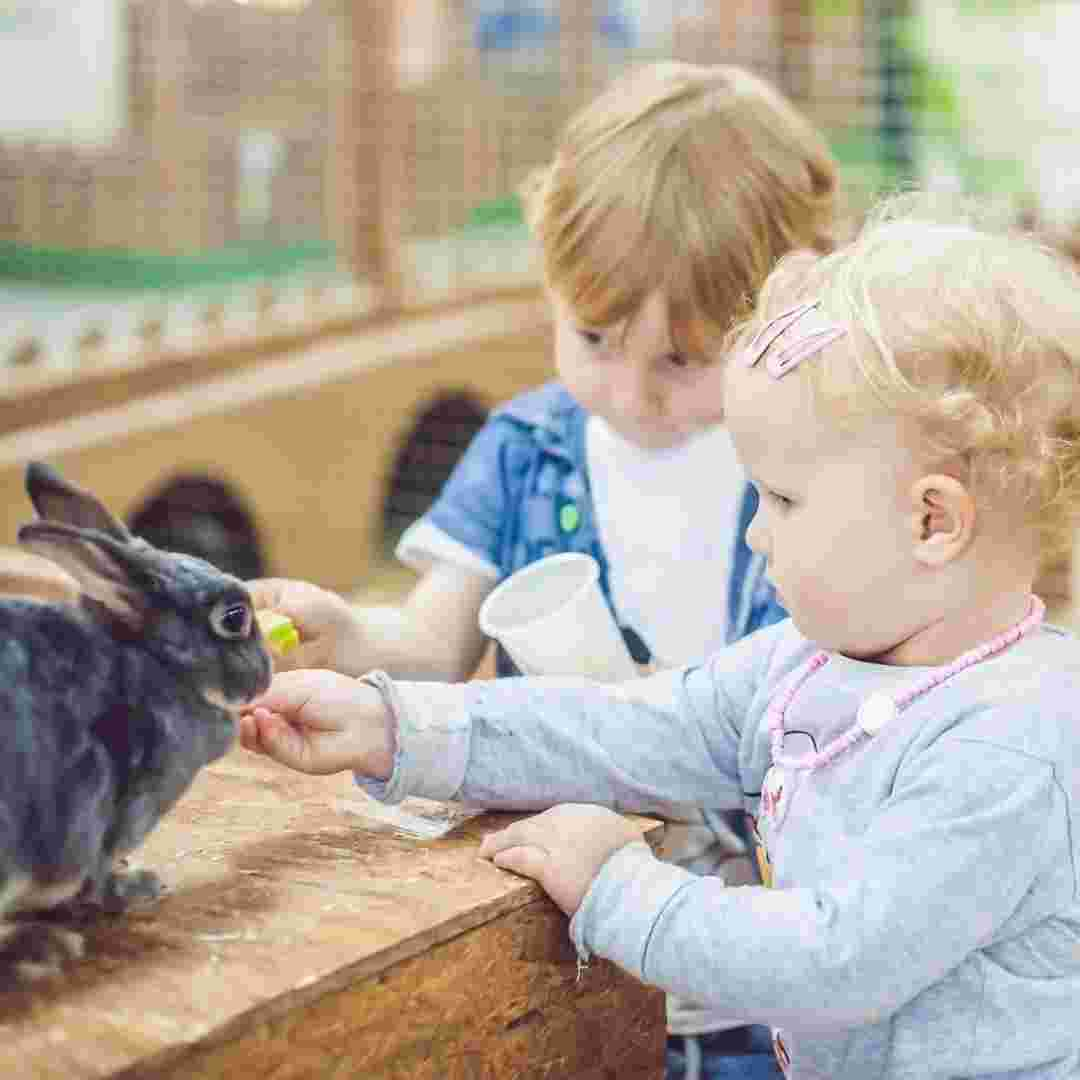Contents Table
Introduction
What to Know Before Adopting a Rabbit
Rabbit-raising pros and cons
Create a Safe and Comfortable Rabbit Home
What to Feed Your Rabbit and How Often
How to Prevent Common Rabbit Health Issues
Q&A
Conclusion
Introduction
Do rabbits make nice pets? They enhance any household, but they need special care. Rabbits are easier to rear than some people imagine, but they need more care and understanding. Rabbits make great pets and offer delight to homes with proper care. This article covers rabbit care basics to keep your rabbit happy and healthy.
What to Know Before Adopting a Rabbit
Adopting a rabbit can be gratifying, but you must understand the commitment before starting. Rabbits are gregarious and need lots of attention. Before adopting a rabbit, consider these factors.
Rabbits need a large home. Their cage should be at least four times the rabbit's size to allow for movement and exploration. The rabbit should have a litter box, toys, and other entertainment in the cage.
Rabbits must eat well. Hay, fresh vegetables, and a few pellets are advised. Treating your bunny too much can cause obesity.
Rabbits need frequent grooming. We brush their fur, cut their nails, and clean their ears. You should also check for illness or injuries.
Fourth, rabbits need exercise. This can involve supervised activity outside the cage and toys to keep them active.
Finally, rabbits need company. They thrive in social groups with other rabbits or animals.
Adopting a rabbit is fun, but you must know the commitment before you start. Your rabbit can be a loving and devoted friend for years with proper care.
Rabbit-raising pros and cons
Raising a rabbit can be gratifying, but you should weigh the pros and downsides before getting one.
Pros
Rabbits are low-maintenance pets. Their food includes hay, fresh vegetables, and a few pellets, and they need little room. Rabbits don't bother neighbours because they're silent.
Rabbits are social too. They can learn tricks and litter box use. Rabbits love being touched and are good pets.
Cons
Rabbits tend to be needy and stressed. Handle them cautiously and don't leave them alone.
Rabbits can damage. Provide plenty of chew toys because they like to chew on furniture and other stuff.
Rabbits need frequent grooming. They need regular brushing and nail trimming.
In conclusion, rabbit ownership can be gratifying, but you should weigh the pros and cons before getting one. Rabbits are terrific pets and can learn tricks, but they need a lot of attention and can be stressed.
Create a Sa!fe and Comfortable Rabbit Home
A safe and comfortable environment for your rabbit is vital to their health. Social rabbits need lots of area to play and explore. Create a safe and comfortable home for your rabbit with these tips.
1. Give a big enclosure. Rabbits require lots of room to roam. Your rabbit needs a large enclosure to move about. The enclosure should be escape-proof and include lots of hiding spots for your rabbit.
2. Provide comfy bedding. Rabbit bedding must be comfortable. Use soft, absorbent bedding like shredded paper or hay. Avoid cedar or pine shavings, which might damage your rabbit's lungs.
3. Provide several toys and activities. Healthy and happy rabbits need lots of stimulus. Give your rabbit lots of toys and activities to play with. Tunnels, boxes, and chew toys are examples.
4. Make it safe. Your rabbit's enclosure should be clear of electrical cables and sharp things. Also, place the enclosure away from loud noises and other pets.
5. Feed well. Healthy eating is vital for rabbits. Feed your rabbit hay, fresh veggies, and a few pellets. Avoid feeding your rabbit processed or sugary meals.
Follow these suggestions to provide your rabbit a secure and comfortable environment. Your rabbit can live long and happy in the correct setting.
What to Feed Your Rabbit and How Often
Herbivores like rabbits eat plants. To keep your rabbit healthy, feed them a balanced diet.
A healthy rabbit diet includes hay, fresh veggies, and a little pellets. Hay, high in fibre, should be your rabbit's main feed to support their digestive function. Timothy hay is best for rabbits and should always be available. Regularly feed your rabbit dark leafy greens like kale, spinach, and romaine lettuce. Other veggies including carrots, celery, and bell peppers can be given, but just one cup each day. Pellets are high in calories and can cause obesity, therefore offer them in small amounts.
Rabbits need fresh water daily in addition to their nutrition. Change water everyday and keep it in a hefty bowl or container to avoid spilling.
Rabbits need morning and evening meals. Smaller rabbits need less food than larger ones. Keep track of your rabbit's weight and diet. Reduce pellets and boost hay and vegetables if your rabbit is gaining weight.
Feeding your rabbit a balanced diet keeps them healthy and happy.
How to Prevent Common Rabbit Health Issues
Rabbits are popular pets but can get sick. Awareness and prevention of these disorders are crucial.
Dental disease is frequent in rabbits. If rabbits don't chew, their teeth might become too large and cause pain and difficulties eating. Give your rabbit plenty of hay, wood blocks, and chew toys to prevent dental disease.
A typical rabbit health issue is gastrointestinal stasis. This illness slows or stops the digestive system, causing gas and other toxins to build up in the gut. Keep your rabbit's diet high in fibre and low in sugar and fat to avoid gastrointestinal stasis. You should also provide your rabbit fresh water and exercise.
Rabbits also get fleas, mites, and worms. Clean your rabbit's habitat and treat fleas and worms regularly to prevent parasites. You should also inspect your rabbit for parasites like itching, scratching, or bald spots.
You can keep your rabbit healthy and happy by preventing these common health conditions.

Q&A
1. Are rabbits hard to raise?
Rabbits are easy to raise. They make good pets and are easy to care for.
2. Rabbits need what kind of environment?
Rabbits need a secure, comfortable, and spacious habitat to explore. Fresh hay, water, and a variety of vegetables and fruits should be available.
3. How much area do rabbits need?
At least 4 square feet per rabbit is needed. At least 8 square feet is needed for numerous rabbits.
4. How often should rabbits be groomed?
Groom rabbits weekly to remove matting and clean their fur.
5. What should rabbits eat?
Rabbits need a high-fiber, low-fat diet. Fresh hay, water, and a variety of vegetables and fruits are needed.
Conclusion
Rabbits make fantastic pets, but they need a lot of care. A secure environment, a nutritious diet, grooming, and exercise are essential. Rabbits may be fantastic pets and family members with proper care.
